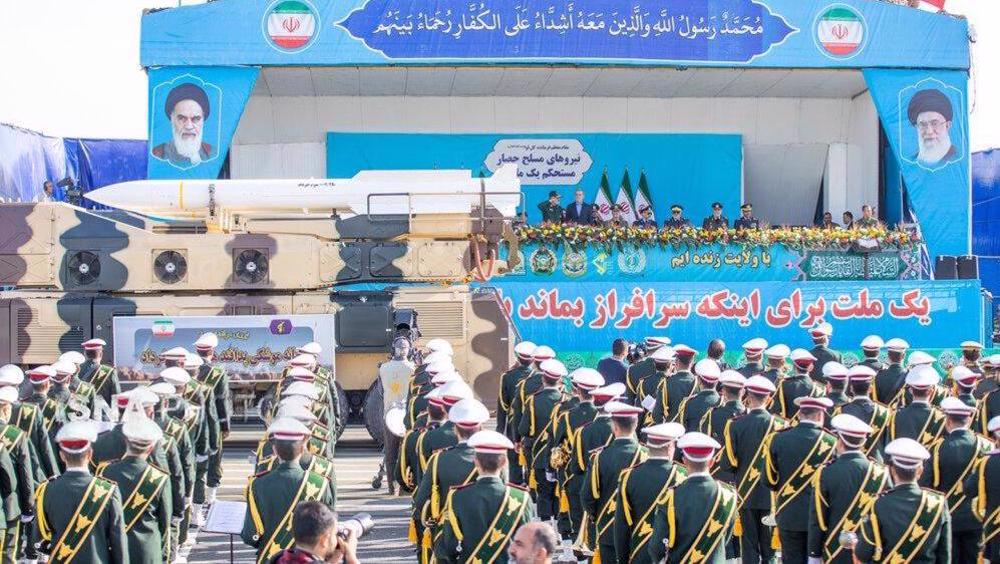
Stuxnet and Iran A US offer to extend the settlement construction moratorium
October 7, 2010
This Update looks at the recently discovered Stuxnet computer worm, designed to infect certain Siemens electronic components and which some experts have speculated may have been developed by parties unknown to slow Iran’s nuclear program.

The Settlements, the Moratorium, and the Peace Talks
September 29, 2010
As readers are probably aware, Israel’s 10-month moratorium on new housing construction in West Bank settlements came to an end on Sunday night. It still remains unclear whether Palestinian Authority President Mahmoud Abbas will follow through on repeated threats to pull out of peace talks in response, with an Arab League meeting called on Monday to discuss the subject. This Update looks at the current situation.

Recognising Israel as the Nation-State of the Jewish People/ Hamas and the Peace Process
September 22, 2010
Israeli Prime Minister Binyamin Netanyahu just gave a speech in the US in which he again emphasised the need, as part of a peace agreement, to recognise Israel as the nation-state of the Jewish people. This Update deals with why this seemingly symbolic question of recognition is so important to both the Israeli government and, according to polls, the Israeli public.

The Latest IAEA Report on Iran/ Turkey’s Referendum
September 17, 2010
As noted in the previous Update, last week the International Atomic Energy Agency (IAEA) revealed some frightening information on Iran’s nuclear program in connection within their latest quarterly report – including that Iran has perhaps three bombs worth of low-enriched uranium and has passed the crucial technical hurdle of enriching uranium to 20%.

A New Phase in Iraq / Peace Advice
September 8, 2010
US President Barack Obama gave a major speech on Iraq last week to mark the promised withdrawal of all US combat troops from Iraq by the end of August. However, rather than discuss the speech itself, this Update looks at the future of Iraq now that coalition forces are no longer doing most of the fighting, and the Western foreign policy challenge given the changed situation in the country.

Hamas, Israeli Security and Peacemaking
September 3, 2010
Following the Israeli-Palestinian Summit in Washington yesterday (in which the details of discussions were kept discreet), this Update features some comments on Hamas’ role as a potential spoiler in the wake of the Hamas terror attack Tuesday, which left four Israeli civilians dead, and a second non-fatal attack Wednesday night – with the Palestinian Authority predicting more such efforts by Hamas.

Today’s Israeli-Palestinian Summit in Washington
September 2, 2010
As readers are doubtless aware, Israeli PM Binyamin Netanyahu is meeting Palestinian Authority President Mahmoud Abbas today in Washington in a summit designed to formally re-launch direct Israeli Palestinian peace talks. This Update offers background on the situation and participants and differing analysis about the prospects of success of the talks scheduled to follow.

The Prospects of the Sept. 2 Israeli-Palestinian Summit
August 26, 2010
As readers will be aware, following a statement by the Quartet (the US, UN, EU and Russia), which you can read here, the Israelis and Palestinian leaders have agreed to a Sept. 2 Summit in Washington to launch much-delayed direct talks. This Update analyses the prospects of the Summit and subsequent talks. Putting the more optimistic view of these prospects is Washington Institute scholar David Makovsky. He points out the surge in cooperation between Israel and the Palestinian Authority in recent years, as well as the positive reforms in the West Bank from Palestinian PM Salam Fayad.

Are Israeli-Palestinian Direct Talks Finally Imminent?
August 20, 2010
The US government is reportedly expecting that direct Israeli-Palestinian peace talks may finally be announced – after months of efforts – as soon as Monday. This Update deals with why it has taken so long to get to this point and what to expect if direct talks actually do resume.

“The Point of No Return” on Iran?/Bushehr
August 18, 2010
Today’s Update leads with a lengthy and controversial article that is generating much comment in the US. Top journalist Jeffrey Goldberg of the Atlantic has written an extended feature piece dealing with the possibility that Israel may launch an airstrike on the Iranian nuclear program – possibly as soon as early next year according to Goldberg. Goldberg has spoken to over 40 Israeli military and political leaders, including PM Binyamin Netanyahu and President Shimon Peres for his story.






